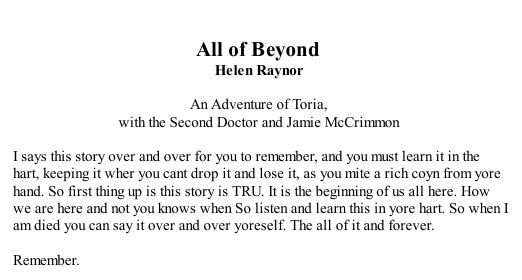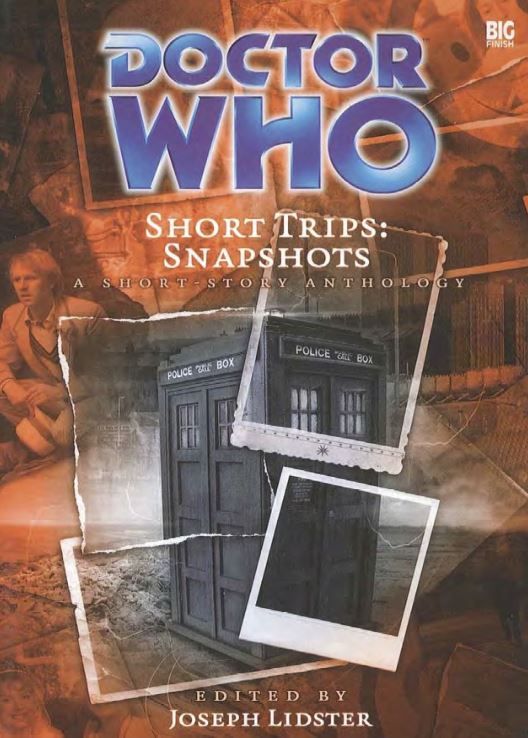"All of Beyond" is one of those tales where the narrator speaks in broken English and the text reflects this with passages like, "I had a frend, back in the tyme of befor, in you knows when I had plenty frends, but Lissa was the most lyke to me." This kind of thing can take a while to get used to and I had to concentrate on the words throughout the whole of this story.
It concerns a girl named Toria who has wandered from her tribe to ponder the mysteries of life and in punishment. Her friend, Lissa, gave birth to a stillborn child and Toria was secretly happy because she wanted her friend back, to have life continue the way it was before Lissa became heavy with child. And then Lissa fell ill and died.
Feeling badly and blaming herself, Toria casts herself out into the wild, but never goes near the Edge, beyond which her world ends and there is nothing. So she's out in the woods doing some Thoreau-like contemplation when she stumbles upon the Doctor and Jamie. They speak about having landed in a dome, but it's all Greek to Toria. One sausage later, Toria is sitting around the campfire with our heroes and she tells them of how the world beyond the Edge is just a wasteland.
She takes them back to her tribe where the Doctor tells everyone that they live in a dome and that the world beyond the Edge is doing quite well and he intends to show them. He jury rigs some gizmo with parts from the TARDIS and creates a hole in the dome. Toria and her people step beyond the Edge and see a city far off on the horizon.
This is one of those tales that I felt would work better as a longer work. I mean, it was fine as a short story but I'd have liked to learn a bit more about Toria's tribe. I got some Sevateem flashbacks here as well as some vague Beasts of the Southern Wild vibes. While self-contained plot-wise and I think the open ending was a great move, it felt incomplete otherwise. It read like a skeleton waiting to have bits of characterization flesh hung on its bones.
Something I thought of while reading "All of Beyond" was that its protagonist was a female and the author, Helen Raynor, is too. This little literary critic voice in the back of my head commented that the women authors of Short Trips tend to focus on female characters (and eschew action). I don't know if this is indeed true but will try to take notice of this in the future.


No comments:
Post a Comment